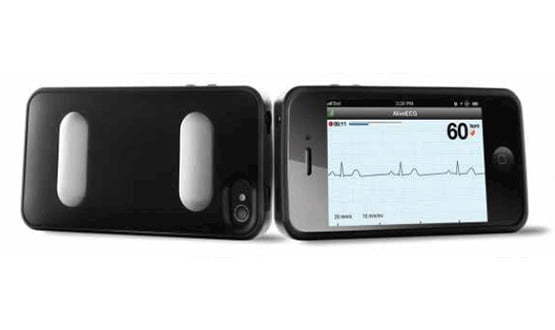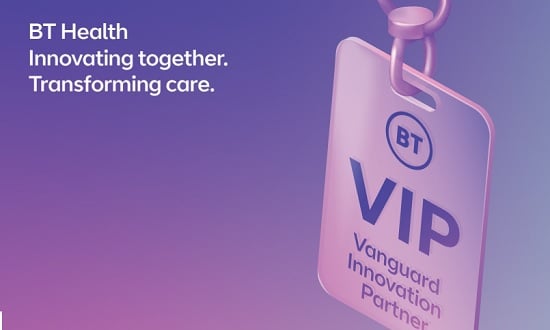CCG pilots smartphone device to reduce stroke risk

A pilot project in Hounslow aims to reduce stroke risk among patients with the use of AliveCor, a mobile electrocardiogram recorder that attaches to a smartphone.
The project, a collaboration between West Middlesex University Hospital, Hounslow Clinical Commissioning Group and the Arrhythmia Alliance, is designed to improve the detection and treatment of atrial fibrillation, a condition that significantly increases the risk of stroke.
AliveCor, which works in conjunction with a smartphone, is a small device that can record an accurate ECG or heart rate in 30 seconds.
If the user experiences a symptoms, such as an irregular heartbeat, they touch the device with their hands, which takes a measurement and sends it to the smartphone. The smartphone creates a permanent record of the trace.
“If you've got intermittent symptoms, rather than having to wear a piece of technology forever, you can just use it as you need it,” said Dr Sadia Khan, consultant cardiologist at West Middlesex University Hospital. Users can choose to share the ECG traces with their healthcare providers.
For the pilot phase, 15 AliveCor devices are in use: five in GPs’ surgeries and ten with patients using the cardiology service. All are using Samsung phones.
The GP surgeries are using the devices in slightly different ways. Dr Brigitte Unger-Graeber, a local GP, said that her practice was incorporating the devices into new patient health checks, in cases where the patient is over 60. So far, two patients have been identified with atrial fibrillation out of 20 or so who have had the checks.
When the pilot finishes at the beginning of April, the plan is gradually to roll out another 200 devices.
Khan believes it likely that about one percent of the local population of 200,000 residents has undetected atrial fibrillation.
“I'd really like us to be able to improve our detection of atrial fibrillation within Hounslow as a very simple measure, and I think if we do that there are all sorts of health benefits both for individuals and for our health system that would follow directly,” she said.
“Firstly we want to raise awareness amongst our local population about this condition, and what it might mean for them, and secondly we want to put our technology quite widely into the community so people can access it to get themselves checked.”




